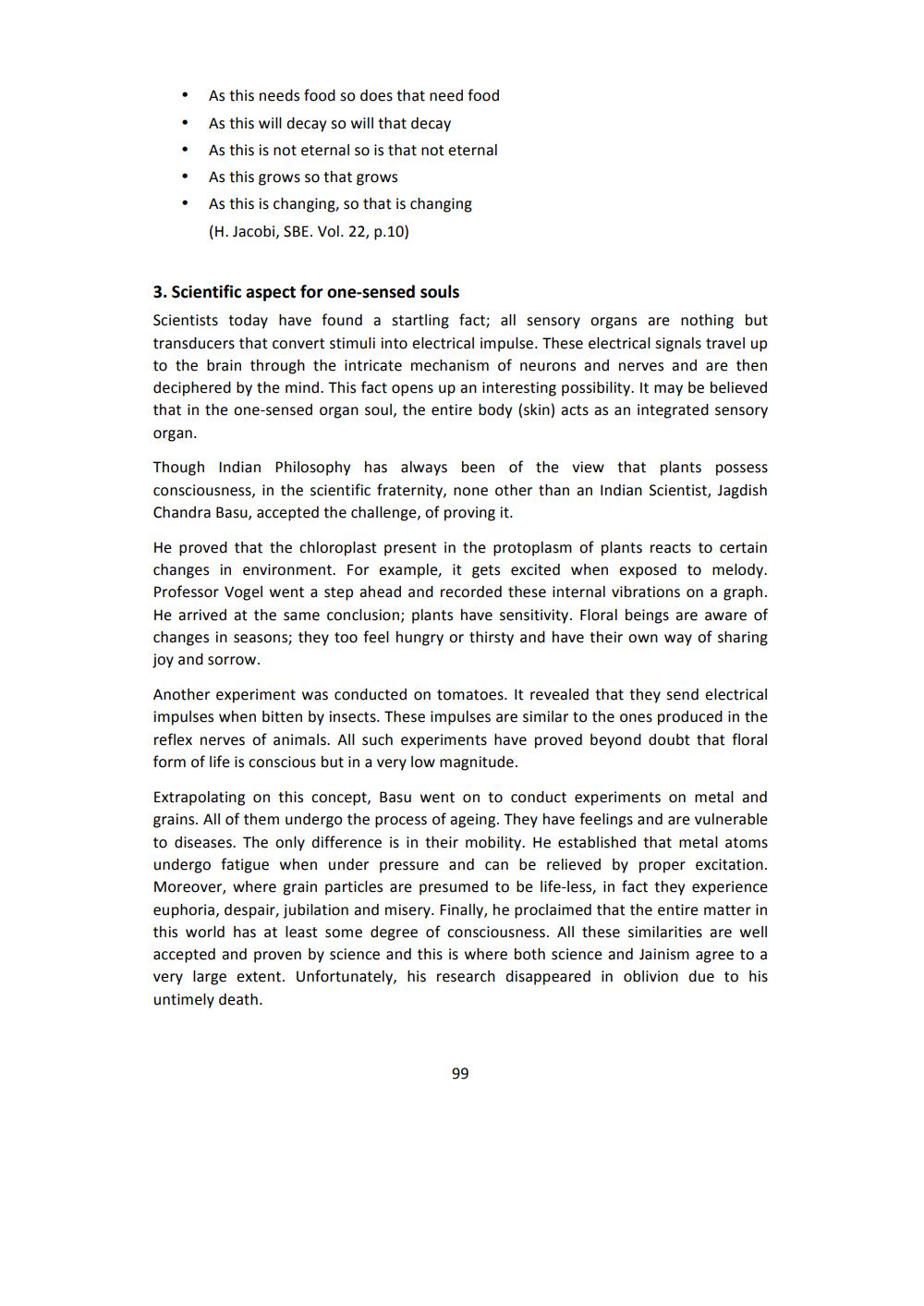________________
•
As this needs food so does that need food
As this will decay so will that decay
As this is not eternal so is that not eternal
As this grows so that grows
As this is changing, so that is changing
(H. Jacobi, SBE. Vol. 22, p.10)
3. Scientific aspect for one-sensed souls
Scientists today have found a startling fact; all sensory organs are nothing but transducers that convert stimuli into electrical impulse. These electrical signals travel up to the brain through the intricate mechanism of neurons and nerves and are then deciphered by the mind. This fact opens up an interesting possibility. It may be believed that in the one-sensed organ soul, the entire body (skin) acts as an integrated sensory organ.
Though Indian Philosophy has always been of the view that plants possess consciousness, in the scientific fraternity, none other than an Indian Scientist, Jagdish Chandra Basu, accepted the challenge, of proving it.
He proved that the chloroplast present in the protoplasm of plants reacts to certain changes in environment. For example, it gets excited when exposed to melody. Professor Vogel went a step ahead and recorded these internal vibrations on a graph. He arrived at the same conclusion; plants have sensitivity. Floral beings are aware of changes in seasons; they too feel hungry or thirsty and have their own way of sharing joy and sorrow.
Another experiment was conducted on tomatoes. It revealed that they send electrical impulses when bitten by insects. These impulses are similar to the ones produced in the reflex nerves of animals. All such experiments have proved beyond doubt that floral form of life is conscious but in a very low magnitude.
Extrapolating on this concept, Basu went on to conduct experiments on metal and grains. All of them undergo the process of ageing. They have feelings and are vulnerable to diseases. The only difference is in their mobility. He established that metal atoms undergo fatigue when under pressure and can be relieved by proper excitation. Moreover, where grain particles are presumed to be life-less, in fact they experience euphoria, despair, jubilation and misery. Finally, he proclaimed that the entire matter in this world has at least some degree of consciousness. All these similarities are well accepted and proven by science and this is where both science and Jainism agree to a very large extent. Unfortunately, his research disappeared in oblivion due to his untimely death.
99




